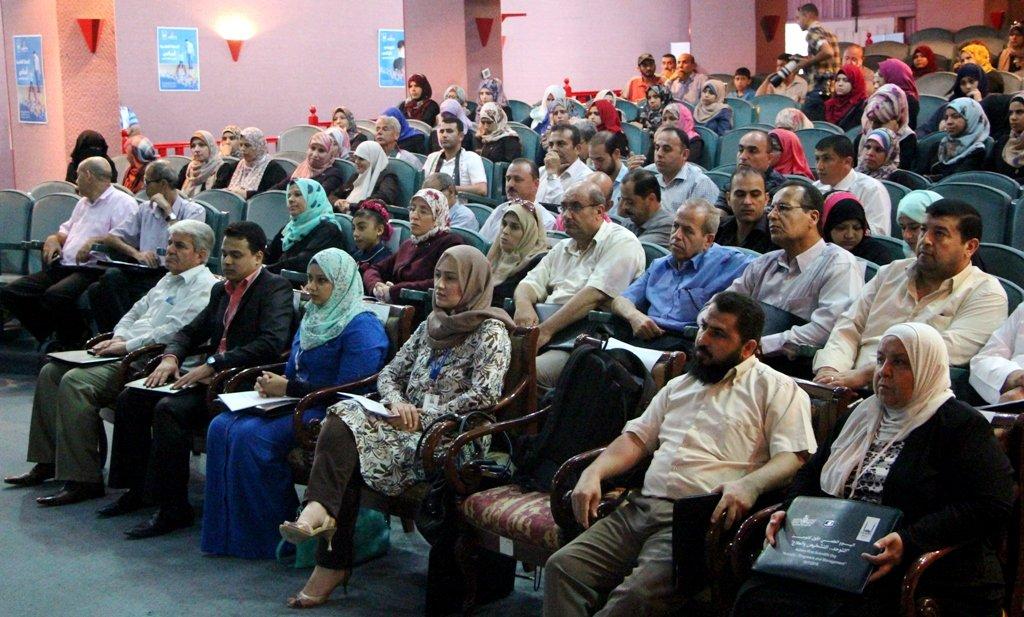
(Gaza - 21/7/2016): The first scientific day on “Autism: Diagnosis and Treatment” was co-organized by PRCS’ Ability Development College in Khan Younis and the Islamic Relief. It was attended by Dr. Jean Calder, College Dean, Mohamad Al Ahga, on behalf of the College’s Board of Trustees, Mohamad Abou Mahram from the Islamic Relief, Dr. Shawqi Mansour from the Ministry of Education and Higher Education, Dr. Yasser Abou Jame’, Director of the Psychological Health Program in the Gaza Strip and several representatives from local institutions and the local population.
In her opening address, Dr. Calder welcomed attendees and underlined the importance of ensuring the medical follow-up of autistic patients. She spoke about the impact autism has on mothers, how it shapes children’s lives and personalities, autism treatment options and autistic behaviors. She called on relevant institutions to work together and to exchange information and experiences in this field.
Participants then discussed autism which they defined as a disorder characterized by difficulties in social interaction, verbal and nonverbal communication and repetitive behaviors. Causes, including risk genes and environmental factors as well as diagnosis methods, early intervention, the emotional impact on parents and the validity of the Applied Behavior Analysis approach in helping autistic patients were also discussed.
Mohamad Abou Mahram, Director of the Islamic Relief’s Childhood Care Program, highlighted the role played by his charity in caring for children with disabilities, especially autistic children. He called on all local organizations working in this field to pool and coordinate their efforts to help affected families.
Speaking on behalf of the Ministry of Education, Dr. Mansour said the Ministry regularly holds workshops and training days in cooperation with relevant institutions with a view to helping persons with disabilities.
Participants adopted a number of recommendations including getting practitioners and researchers acquainted with the “I Am Among You” guidebook for community-based awareness, prevention and early diagnosis, training parents on coping with autism, building the capacities of specialists and professionals, furthering cooperation amongst relevant institutions, enhancing the role played by public bodies and the Ministry of Social Development towards ensuring care for and rehabilitation of autistic children, creating a Higher Committee tasked with communications and networking, and offering a specialized higher education degree in autism studies.
At the end of the day, certificates of appreciation were handed to participants.
End.